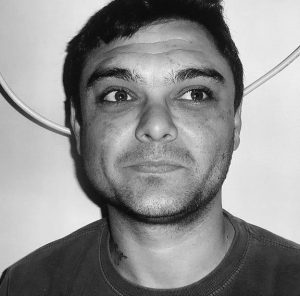Asthma Australia today attended the Findings in the Inquest into the death of Nathan Reynolds to support the Reynolds family, and to see how we are best placed to help improve asthma management and emergency response in NSW prisons which were found to have contributed to Nathan’s death.
Nathan was a proud First Nations man of Anaiwan and Dunghutti descent, and a beloved member of his large family. Nathan suffered an acute asthma attack and died on 31 August 2018 whist in a NSW prison, less than one week before his release.


Nathan’s death is a tragedy which has exposed an urgent need for change when it comes to the health care given to people with asthma in NSW prisons, including culturally appropriate care for First Nations Peoples.
Asthma is a condition that can lead to death in the space of minutes. It affects one in five NSW inmates, and Australia-wide it is the most common health condition reported in prisoners.
It is imperative asthma management is improved in NSW correctional settings, given the prevalence of this chronic illness and risk to life should it not be managed properly.
“Nathan’s death was traumatic and we learnt today there was a chance it could have been prevented,” Asthma Australia CEO Michele Goldman said, who was present at the presentation of findings at the inquest.
NSW Deputy State Coroner Elizabeth Ryan found “In critical ways, the health care [Nathan] received since entering custody was inadequate. It failed to reduce his risk for a fatal asthma attack. It did not comply with established treatment for the management of severe asthma. It did not even comply with NSW Health’s own policies to prevent chronically ill prisoners from deterioration and death.”
The Deputy State Coroner also found that the emergency response to Nathan’s medical crisis was “confused, uncoordinated and unreasonably delayed. The delay deprived Nathan of at least some chance of surviving his acute asthma attack.”
Corrective Services NSW have a responsibility to give inmates the necessary medical care and attention to support their health.
“As the peak consumer body for asthma in Australia, we believe any preventable asthma death whilst in custody is unacceptable and it’s incumbent on us all to improve things,” Ms Goldman said.
“Asthma is a condition that should be able to be well managed with the appropriate care, medications, and an Asthma Action Plan to clarify what actions to take when the condition deteriorates. Together with asthma first aid, we learnt today outcomes could have been different for Nathan,” Ms Goldman said. “We have a responsibility to see this does not happen again.”
Asthma Australia notes and strongly supports the Coroner’s recommendations, in particular:
- To the Commissioner CSNSW: Recommendation 1 – Responding to a Serious Health Event
- To the Commissioner CSNSW: Recommendation 3 – Training about asthma
- To CEO, Justice Health: Recommendation 1 – Review of practices for asthma management
- To CEO, Justice Health Recommendation 5 – Review practices and procedures for management of asthma patients
Asthma Australia will seek an open conversation with Corrective Services NSW and the integrated Justice Health and Forensic Mental Health Network to contribute as an organisation, which offers evidence-based asthma training, information, and resources.
On behalf of Asthma Australia, Ms Goldman expressed our deepest sympathies are with members of the Reynolds family today, “Their fight for justice has been difficult and it has uncovered deeply troubling findings. We are saddened by this traumatising situation and our efforts will be spent doing what we can to help improve the system for people with asthma, particularly First Nations peoples in NSW prisons.”






